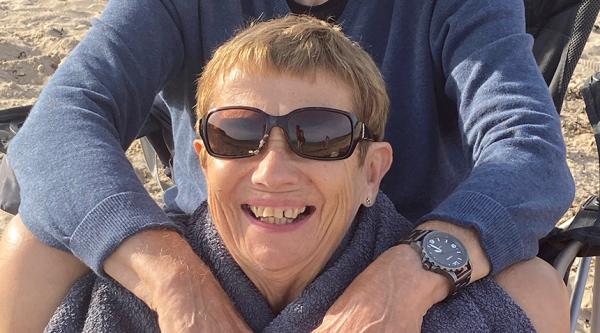Advance statements and dementia
If you have dementia, you may wish to make an advance statement to express your wishes, feelings and values. Find out why you might make one and how they are different to advance decisions.
Advance decisions and advance statements
An advance statement gives you the option to record your wishes, feelings, beliefs and values. It allows you to express your preferences for a broad range of things such as the type of care you would like in the future.
Get the Planning ahead booklet
Find out more about advance statements
An advance statement gives you the option to record your wishes, feelings, beliefs and values.
In the future, this statement can be used by a person to make decisions on your behalf. Advance statements can be called different things, for example ‘statements of wishes and care preferences’.
If you want to make a decision now about treatments you may receive in the future, you need to create an advance decision. Advance statements are different, as they are not legally binding. Unlike advance decisions, advance statements do not act as your own decision if you lack the capacity to make that decision. Instead, they are more like guidelines to help other people make decisions.
Advance statements can cover a much broader range of topics than an advance decision.
The Mental Capacity Act 2005 says that if you lack mental capacity to make a decision, then someone acting on your behalf must do so in your best interests. According to the Act, to do that, they must consider your past and present:
- wishes
- feelings
- beliefs and values.
You might make an advance statement for one or more of the following reasons:
- It can be reassuring to know that you have given guidance about your wishes, feelings, beliefs and values.
- It can prompt conversations about your future care with doctors and nurses that you may not have otherwise.
- It can help health professionals (who don’t know you) treat you as a unique individual.
- It may help to clarify your own thoughts.
- It can help those close to you to know what you would want to happen if they have to decide or help others decide that in the future.
Advance statements are not legally binding. Unlike advance decisions, they do not operate as your own decision if you lack capacity to make decisions about medical treatment in the future.
Instead, they help other people make decisions for you if you can’t make them yourself.
Do doctors and medical professionals have to follow an advance statement?
Doctors and medical professionals do not have to follow an advance statement. However, anyone connected with your care and treatment must take an advance statement into account when making decisions about these.
This includes:
- doctors
- nurses
- all other health and social care professionals
- family
- friends
- attorney(s) under a Lasting power of attorney, if you have one.
They should try to follow the advance statement where possible, and if they don’t, it must be because they have a good reason. For example, a reason might be due to safety concerns or for practical or financial reasons.
If it’s a written advance statement, any decision maker should record their reasons for going against your wishes, and explain why if challenged.
An advance statement can be made verbally. For example you could explain your wishes and preferences to a family member or a friend.
However, it’s a good idea to create a permanent record. Some people have made audio or video recordings of themselves explaining their wishes.
The Mental Capacity Act 2005 says that particular consideration should be given to written statements. Therefore, it’s a good idea to write your statement down if you can.
What information should you include in an advance statement?
You can use an advance statement to express your wishes on future care options, such as where you wish to live, or the type of care and support you wish to receive.
You could also use it to express other wishes and preferences not directly related to care, such as:
- the food you would like
- your moral, political, or religious views
- what activities you enjoy
- what is important to you.
You can also cover more difficult topics if you wish. For example, whether you’d prefer to die at home or in a hospital or hospice. It can be very useful to explain how you would balance quality of life against length of life.
For example, some people wish to live for as long as possible regardless of the quality of their life. For others the quality of their life is the most important factor.
You should also remember that if the contents of your advance statement comply with the legal requirements for an advance decision, it will be treated as an advance decision and must be followed.
What if you change your mind about an advance statement?
You can change any advance statement that you make at any time. If you have made a written advance statement you must make sure that all copies have been updated and anyone you have told is aware of any changes you have made.
It is a good idea to review your advance statement from time to time, particularly if your circumstances have changed.
For more information on planning for the future and a template for an advance statement, see Planning ahead. The NHS also have information on advance decisions, advance statements and Lasting power of attorney.






